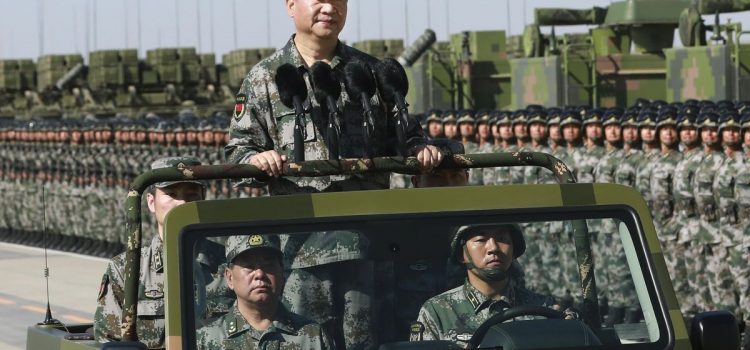
In the wake of the Wuhan Coronavirus, the new cold war with China isn’t getting any cooler. It seems that my predictions that China was going to step up the aggression in the aftermath were pretty on.
(Man, I hope I can get the Maelstrom Rising series done before things really go pear-shaped…)
Hong Kong
Hong Kong has been the first on the chopping block. The protests in recent months have been largely in response to the Hong Kong government’s proposal for an extradition law (that would have made Hong Kong citizens subject to extradition to the PRC for crimes under PRC law). It was taken as a sign that the HK government was increasingly subject to Beijing. The law was withdrawn after the protests, but things haven’t exactly calmed down.
The PRC’s National People’s Conference recently decided to impose a National Security Law on Hong Kong. A similar law had been proposed by the HK government in 2003, but was withdrawn after protests. Now, Beijing is directly imposing it. The US has recognized this move as effectively the death of Hong Kong’s de facto independence, as announced by Secretary of State Mike Pompeo. “After careful study of developments over the reporting period, I certified to Congress today that Hong Kong does not continue to warrant treatment under United States laws in the same manner as U.S. laws were applied to Hong Kong before July 1997,” Pompeo said.
Taiwan
Hong Kong isn’t the only place in Beijing’s sights. The PRC has stepped up its pressure on Taiwan, as well.
The PLAN has conducted several incursions into Taiwanese waters and airspace over the last few months. PLA aircraft crossed the “invisible line” in the Taiwan Strait on February 10. The PLA’s Eastern Theater Command has been conducting more drills, and now the PLAN is planning on exercises that would simulate the amphibious takeover of several small islets off the Taiwanese coast.
Beijing has proposed extending the “One Country, Two Systems” model to Taiwan, which has been roundly rejected by President Tsai, pointing to how well that’s worked out for Hong Kong (Under the 1997 treaty, Hong Kong was supposed to be de facto independent for fifty years. It’s lasted just over twenty.). It doesn’t help the situation that Beijing has recently dropped the word “peaceful” from its resolution on reunification.
India
Border clashes in Sikkim, India, have resulted in injuries and a growing buildup of PLA and Indian Army troops in the region. Sikkim has been the site of numerous border disputes between India and China, going back to the border war in 1962. These sorts of scuffles have become fairly common, but this one seems to be escalating a bit more.
The last such clash happened in 2017, when China tried to force a road through Indian-claimed territory. This isn’t the first time they’ve done this, either. China forced the Karakorum Highway through Indian-claimed territory in Kashmir, and has claimed most of Arunachal Pradesh province as its own for decades.
China’s not pushing India just to be difficult. They have real logistical reasons for doing this, primarily to push petroleum shipment routes to Burma and Pakistan. Every move to foment instability has a purpose, most of them aimed at the New Silk Road, making “all roads lead to Beijing” in one way or another.
New Cold War
In all of this, China’s threats against the US have continued to escalate, including warnings to “abandon wishful thinking about changing China.” (Which is pretty rich coming from a country that has poured billions of dollars into information operations in the US.) While the US Navy continues to conduct Freedom of Navigation exercises in the South China Sea, Chinese authorities have continued to make threats. While China has continued to push its neighbors, claiming larger and larger swathes of the South China Sea as its territorial waters (well outside the 12 nautical miles that constitutes “territorial waters” in international law), it claims victim status by saying that “The United States has intensified the suppression and containment of our side since the [coronavirus] outbreak, and the Sino-US strategic confrontation has entered a period of high risk.” This according to Defense Minister Wei Fenghe, who added, “We must strengthen our fighting spirit, be daring to fight and be good at fighting, and use fighting to promote stability.”
Claiming to be the victim while leaning on everyone around them is a common tactic for Beijing in this new cold war. They warn about a cold war, while escalating it themselves, using the chaos of the coronavirus as a cover for more expansionist actions.
Communist China is pushing. I still believe that much of this is due to a certain degree of desperation. Their demographic crisis is worsening. We will probably never know just how many Chinese have died of the coronavirus, and the economic backlash has only just begun. If they are going to secure their dominance, they have to do it soon, before everything falls apart.
We live in interesting times.